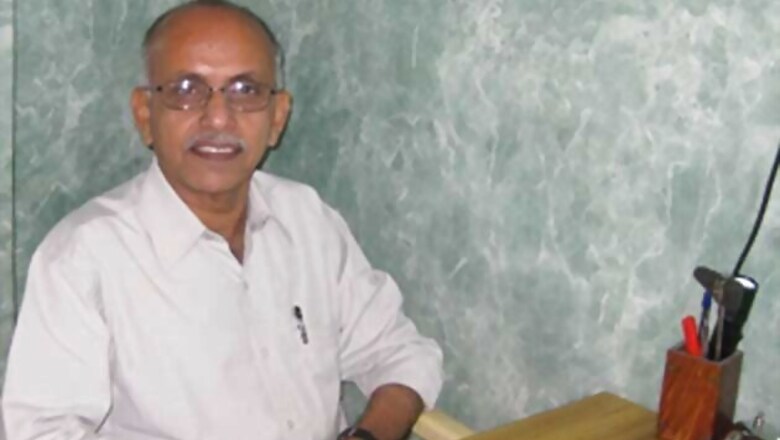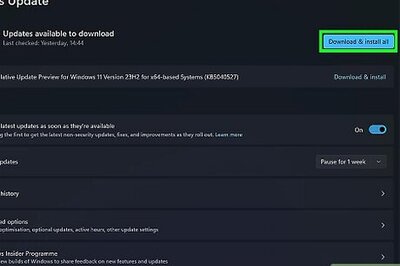
views
A million people with cancer and many millions more with other incurable diseases are in agonizing pain in India due to the lack of availability of morphine and other Opioid medicines (An Opioid is any psychoactive chemical that resembles morphine in its pharmacological effects).
The World Health Organization (WHO) states that Opioid analgesics, in particularly oral morphine, are regarded as the gold standard for relieving moderate to severe pain due to cancer and AIDS. Eighty percent of all cancer patients and fifty per cent of AIDS patients will need relief from moderate to severe pain during the course of the illness. We must ensure that all Indians across the country can access evidence-based, appropriate medical care. It is estimated that less than 1 per cent of chronically ill patients have access to pain relief medicines in our country. Other important facts that need to be highlighted are:
- The WHO has recognized palliative care as an integral and essential part of comprehensive care for cancer, HIV, and other health conditions. If left untreated, persistent pain severely impairs the patient's dignity and quality of life.
- Morphine Sulphate finds a place in the National List of Essential Medicines of India, 2011, compiled by the Ministry of Health and Family Welfare, GOI, casting a further obligation on the Government to ensure availability of such drugs. Very few hospitals in the country, including Government hospitals has this essential medicine!
- Non-availability of opioids in health care systems has been considered an infringement of the right to health under international law. Human Rights Watch reports of March 2008 and October 2009 vindicate this.
- International Drug Conventions that form the basis for enacting the NDPS Act themselves recognize that the use of narcotic drugs and psychotropic substances for medical and scientific purposes is indispensable.
- The International Narcotics Control Board (INCB) has time and again, highlighted concerns over access to opiates for medical needs in their annual reports. In its recommendations to the Government of India during its mission in December 2010, the INCB is reported to have encouraged India to ensure that simplified rules are implemented in all States and Union Territories of India to facilitate the availability of opioid analgesics. The recommendations also form part of the National Policy on Narcotic Drugs and Psychotropic Substances (Page 44 & 45), released in February 2012.
The United Nations Single Convention on Narcotic Drugs 1961, as amended in 1972, obligates national governments to prevent nonmedical use and addiction of narcotic drugs and also ensure their adequate availability for medical and scientific use. It is important to note that efforts to reduce diversion and trafficking of narcotic, psychotropic and controlled substances must be maintained while balancing the urgent public health need of access to narcotics and psychotropic substances for medical and scientific use. It may also be pertinent to note that GOI exports around 500 MT of Opium gum to US and Japan to meet the legitimate, medical needs of Opioids in these countries but processes less than 10 MT to manufacture morphine, to meet the medical needs of Indian patients, for palliative care.
Opioids are narcotic drugs and controlled by the Narcotic Drugs and Psychotropic Substances Act, ("NDPS") 1985. The possession, use, consumption, transport, import inter-state and export inter-state of Opioids is subject to complex and multiple licenses, that vary from State to State/Union territories. By the time one permit is obtained, the other expires, thus obstructing the availability of these medicines. In effect, we are operating as 36 independent countries with respect to availability of Opioids for medical use. In its recently released National Policy on Narcotic Drugs and Psychotropic Substances (Page 14 & 15) in February 2012, the Government of India has itself acknowledged that the absence of uniform rules in the country for the possession, use, consumption, transport, export inter-state and import inter-state is one of the main impediments to access to pain relief medication.
The urgent need is to have one uniform licensing system under the central NDPS Act that applies throughout the country. Instituting certain amendments in the NDPS Act, which will empower the Central Government to frame rules for the supply of opioids for medical and scientific use, across the country, is the only solution to bring about uniformity. The Indian Association of Palliative care and Pallium India had submitted a detailed representation of the amendments to the NDPS Act. Subsequently, the amendment has been drafted and has now been placed before the Parliament.
The amendment involves-
- One single regulation for morphine and similar essential narcotic drugs for the whole country as against the current status of individual rules for each state
- One single license to hold and use morphine and similar drugs instead of the current situation of needing 4 or 5 separate licenses
- One single agency - the state drugs controller - responsible for issuing licenses and monitoring it, thus removing delays caused by interdepartmental communication.
The amendment needs to be passed by the Parliament if we and our loved ones, when confronting a disease, are to live and die with dignity.
Dr MR Rajagopal is Chairman, Pallium India, and Director, Trivandrum Institute of Palliative Sciences Thiruvananthapuram. He has been fighting for the amendments to our archaic drug laws. The Bill, which allows the use of Morphine in Indian hospitals, has been before the Parliament for the past 18 years. It is expected to be tabled for the 7th time. But, the doctors are not optimistic about it s passage.















Comments
0 comment